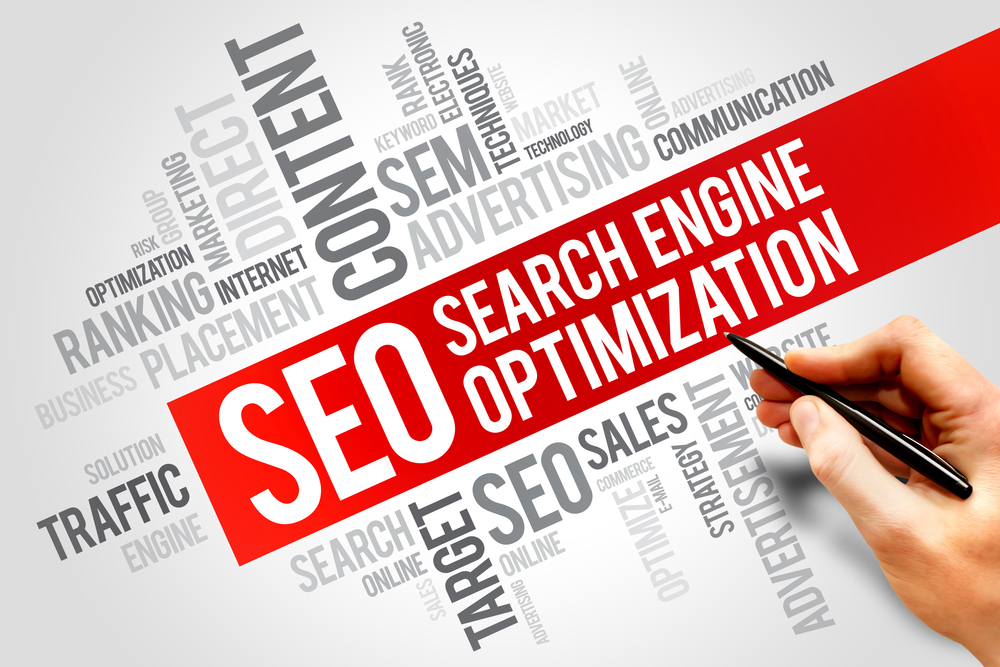
Boost Your Website's Ranking: Essential SEO and Link Building Tips

In the vast landscape of the internet, getting your website noticed can be a formidable challenge. With billions of websites out there, how can you ensure that your website stands out from the crowd? The answer lies in Search Engine Optimization (SEO) and link building. These two crucial strategies can help increase your website's visibility, drive organic traffic, and boost your ranking on search engine results pages (SERPs). In this article, we will delve into some essential SEO (search engine optimization) and link building tips to help you achieve these goals.
1. Understand the Basics of SEO (or SEM)
SEO is the foundation upon which your website's ranking is built. It involves optimizing your website's content and structure so that search engines can easily understand and categorize your pages. One of the most important factors in SEO is keyword research. Start by identifying relevant keywords and phrases that people are searching for in your industry. Incorporating these keywords strategically throughout your website, including in page titles, headings, meta tags, and content, will help search engines recognize your site's relevance to search queries.
2. Create High-Quality Content
Content is king in the realm of SEM/SEO . To attract and retain visitors, your website must offer valuable, informative, and engaging content. By producing well-written articles, blog posts, videos, or infographics, you provide users with the information they seek, thus increasing the chances of them staying longer on your site. Moreover, high-quality content is more likely to be shared and linked to, further boosting your website's authority and visibility.
3. Optimize Website Load Time
Website speed is another critical factor in SEO/SEM . With attention spans growing shorter, users expect websites to load quickly. If your website takes too long to load, visitors are likely to abandon it and seek alternatives. To enhance your website's load time, optimize image sizes, enable browser caching, and minimize the use of unnecessary plugins. Regularly check your website's performance using tools like Google PageSpeed Insights to identify and fix any speed-related issues.
4. Build a Strong Backlink Profile
Backlinks, or incoming links from other websites, are like votes of confidence for search engines. A website with a robust backlink profile is considered more authoritative and trustworthy. However, not all backlinks are created equal. Quality is more important than quantity. Focus on acquiring links from reputable and relevant websites that have strong domain authority. You can achieve this by creating shareable content, reaching out to influencers and industry leaders, and guest posting on authoritative sites.
5. Optimize for Mobile Devices
With the increasing prevalence of smartphones and tablets, optimizing your website for mobile devices is no longer a luxury; it's a necessity. Mobile optimization ensures that your website looks and functions seamlessly across various screen sizes and devices. Google has even made mobile-friendliness a ranking factor in its search algorithms. To optimize for mobile, use a responsive design, optimize images for smaller screens, and streamline your website's navigation to provide a smooth user experience.
6. Regularly Update and Monitor Your Website
Search engines favor websites that are regularly updated with fresh, relevant content. Regularly publish new blog posts, articles, or videos to show search engines that your website is active and evolving. Additionally, monitoring your website's performance is crucial for identifying and rectifying any issues that might be hindering your SEO efforts. Use tools like Google Analytics and Google Search Console to track performance metrics, identify broken links, and detect crawling or indexing errors.
Frequently Asked Questions
Q1. How long does it take for SEO efforts to show results?
A1. SEO is a long-term strategy, and results may vary depending on various factors such as website age, competition, and the resources invested. Generally, noticeable improvements in ranking and organic traffic can take several months to a year.
Q2. Can I simply buy backlinks to boost my website's ranking?
A2. Buying backlinks is a common practice, but it's considered a black hat SEO technique. Search engines like Google can detect paid links and penalize websites for such manipulative practices. It's always better to focus on acquiring natural, organic backlinks through quality content and relationship-building.
Q3. Is it necessary to hire an SEO agency or consultant?
A3. Hiring an SEO professional can be beneficial, especially if you lack the knowledge or resources to implement SEO strategies effectively. However, it's not a prerequisite for improving your website's ranking. With proper research and dedication, you can learn and implement SEO best practices on your own.
Q4. Should I prioritize on-page or off-page SEO?
A4. On-page and off-page SEO go hand in hand and are both crucial for a comprehensive optimization strategy. On-page SEO focuses on optimizing your website's content and structure, while off-page SEO deals with building backlinks and improving your website's authority. Both are essential for a well-rounded SEO approach.
Q5. Are SEO efforts a one-time thing, or do they require continuous work?
A5. SEO is an ongoing process. Search engines constantly update their algorithms, and competitors are always striving to improve their rankings. To maintain and improve your website's ranking, it's essential to regularly monitor and update your SEO strategies, adapt to changes, and stay informed about the latest industry trends.
Boost Your Website's Ranking With SEO and Link Building
Implementing effective SEO strategies and building high-quality backlinks are essential components of a successful website. By understanding the basics of SEO, creating valuable content, optimizing your website's load time, building a strong backlink profile, and prioritizing mobile optimization, you can significantly boost your website's ranking and visibility. Remember, SEO is an ongoing effort that requires dedication and continuous improvement. By staying informed, adapting to changes, and regularly monitoring your website's performance, you can ensure that your website remains competitive in the ever-evolving digital landscape.
Other useful resources
- https://www.seoguru24.com/promote-website/
- https://www.seoguru24.com/listing-category/seo-tools/
- https://simple.wikipedia.org/wiki/Search_engine_optimization